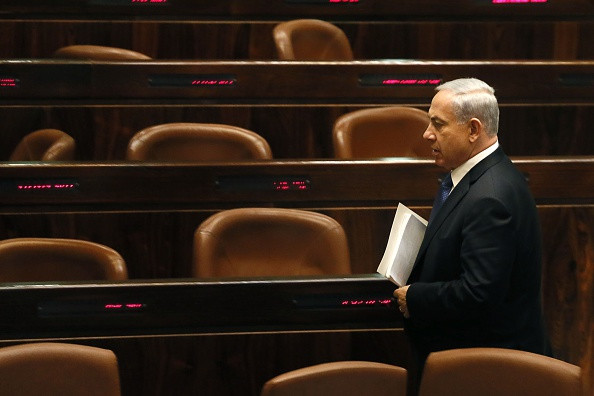Al-Aqsa Mosque: Israeli PM Benjamin Netanyahu Vows to Maintain Status Quo at Holy Site

Israeli Prime Minister Benjamin Netanyahu's office has said that Israel's policy towards a ban on Jewish prayer at the Temple Mount site would not change, after Housing Minister Uri Ariel suggested that the Al-Aqsa mosque could be replaced by a Jewish temple.
"In last night's security consultation, the Prime Minister made it clear that there will be no change in the status quo on the Temple Mount and that whoever expresses a different opinion is presenting a personal view and not the policy of the Government," Mark Regev, a spokesman for Netanyahu, said in a statement.
The holy site was captured by Israel in the 1967 Six-Day War and an agreement was reached whereby Muslims would be able to pray on the Temple Mount while Jewish prayer would be limited to the Western Wall area.
Netanyahu's statement comes after Ariel told Israeli radio station Kol Berama - controlled by the Jewish extremist movement Shas - that the status quo at the Al-Aqsa Mosque could not continue as it "was built in the place of the holiest place for Israel".
In response to the rising tensions in Jerusalem surrounding the holy site, Netanyahu called "on all Knesset [Israeli parliament] members to calm tensions regarding the Temple Mount and show responsibility and restraint".
The site has been at the centre of unrest in recent months as protests have erupted over Jewish visitors to the site and worries over a possible change which would allow Jews to pray at the flashpoint location.
There are concerns among some Israeli officials that emboldened Israeli actions in regard to the holy site will lead to a third Palestinian intifada - or uprising.
© Copyright IBTimes 2025. All rights reserved.






















